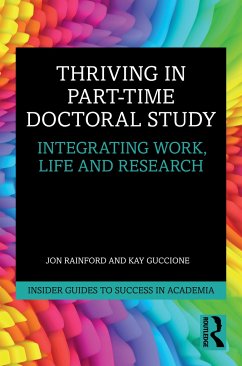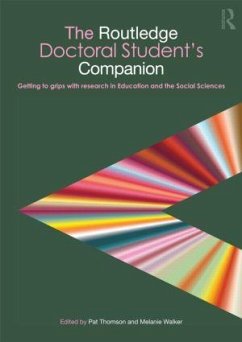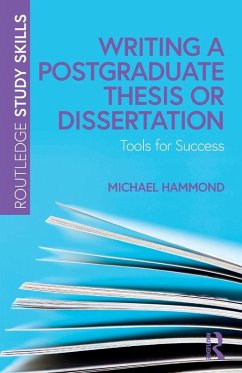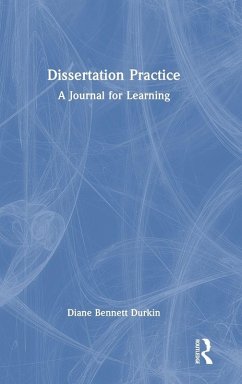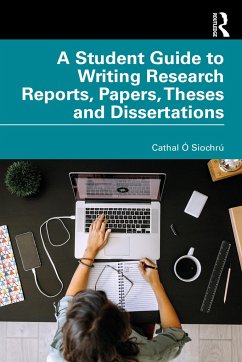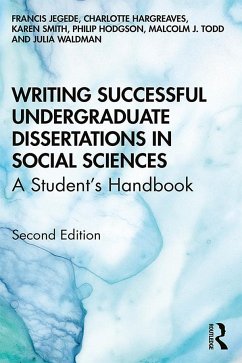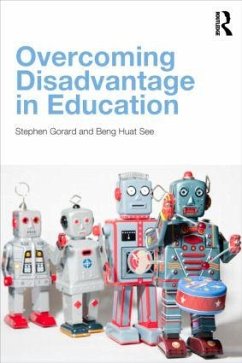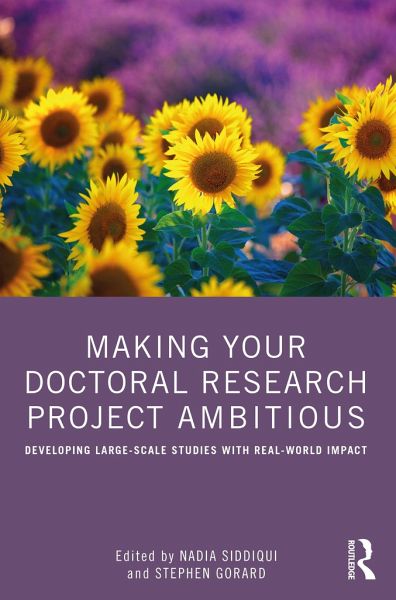
Making Your Doctoral Research Project Ambitious
Developing Large-Scale Studies with Real-World Impact
Herausgegeben: Siddiqui, Nadia; Gorard, Stephen

PAYBACK Punkte
16 °P sammeln!
This book presents the doctoral dissertation process as not just a way of getting a qualification or even a method of learning how to do research better, but as a substantial and significant piece of research in its own right. The book will inspire current and prospective PhD scholars to take up ambitious and large-scale study projects, dedicating this most important time to a worthy piece of research.This edited collection provides real and outstanding examples of multiple research design methodologies which will allow doctoral researchers to develop a wide set of research skills, leading to ...
This book presents the doctoral dissertation process as not just a way of getting a qualification or even a method of learning how to do research better, but as a substantial and significant piece of research in its own right. The book will inspire current and prospective PhD scholars to take up ambitious and large-scale study projects, dedicating this most important time to a worthy piece of research.
This edited collection provides real and outstanding examples of multiple research design methodologies which will allow doctoral researchers to develop a wide set of research skills, leading to the development of a high-quality academic thesis from which peer reviewed research papers and books can emerge. Each main chapter presents the summary of a doctoral thesis, followed by focused aspects from the projects where the contributors highlight the development of a research design, the process involved in executing the design, and present selected findings with their implications. Each chapter concludes with the researchers' experiences of learning through this journey and the implications of the process for the development of the discipline and their own career.
Ideal reading for doctoral students and supervisors, this book is a source of encouragement and motivation for new researchers seeking to challenge general perceptions in the social sciences that PhD or other doctoral research projects must be small-scale rather trivial studies, but can instead produce robust findings that have real-world implications.
This edited collection provides real and outstanding examples of multiple research design methodologies which will allow doctoral researchers to develop a wide set of research skills, leading to the development of a high-quality academic thesis from which peer reviewed research papers and books can emerge. Each main chapter presents the summary of a doctoral thesis, followed by focused aspects from the projects where the contributors highlight the development of a research design, the process involved in executing the design, and present selected findings with their implications. Each chapter concludes with the researchers' experiences of learning through this journey and the implications of the process for the development of the discipline and their own career.
Ideal reading for doctoral students and supervisors, this book is a source of encouragement and motivation for new researchers seeking to challenge general perceptions in the social sciences that PhD or other doctoral research projects must be small-scale rather trivial studies, but can instead produce robust findings that have real-world implications.






